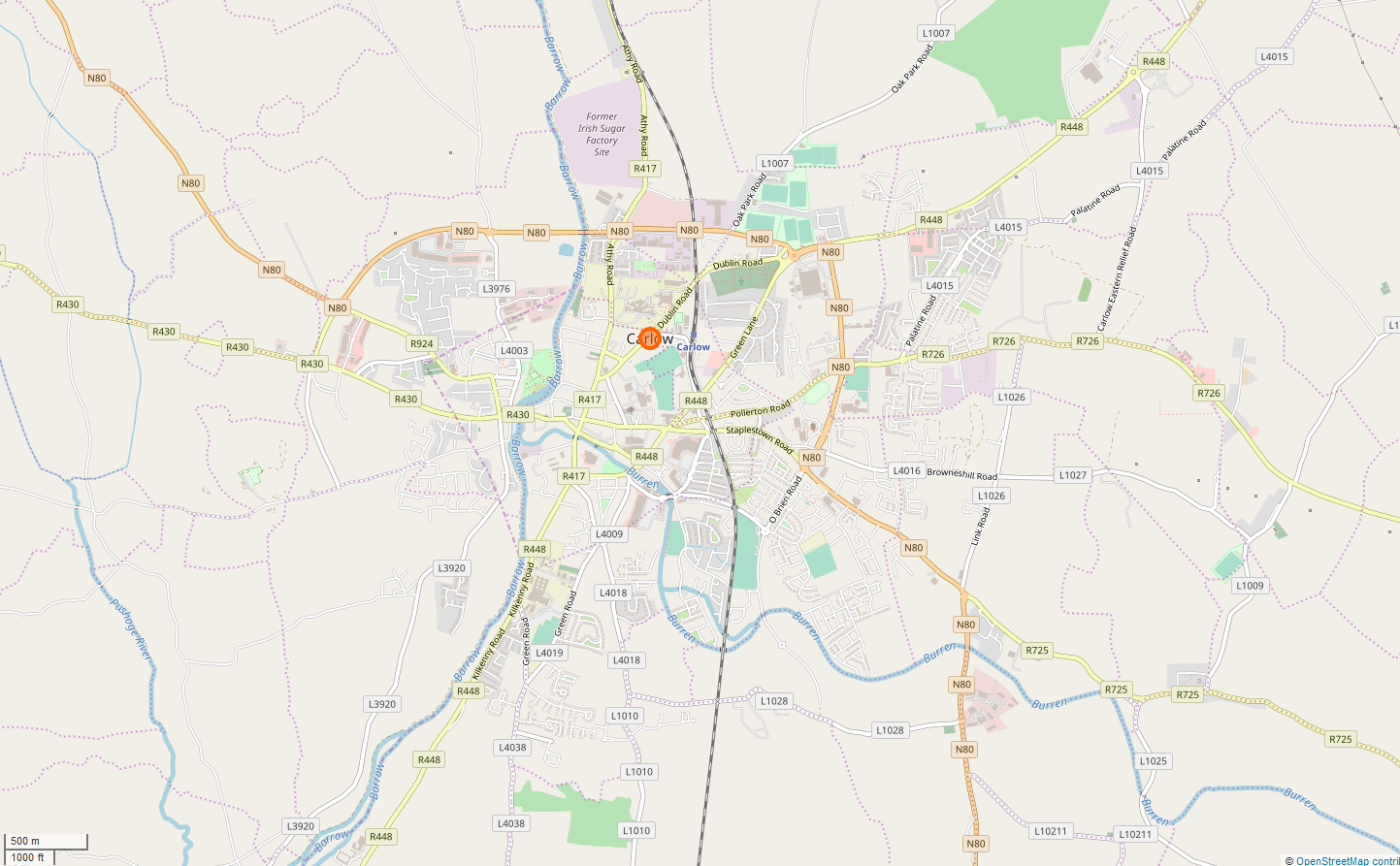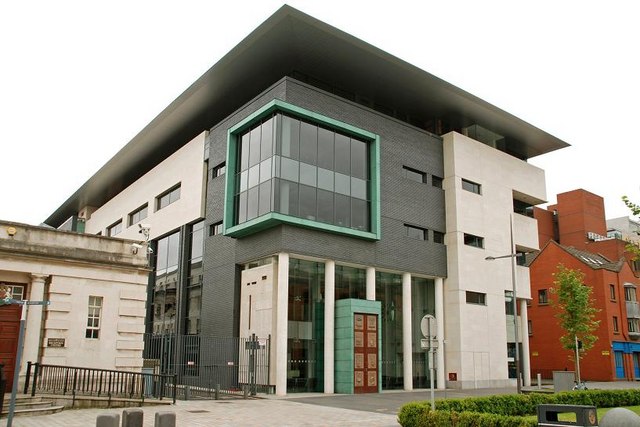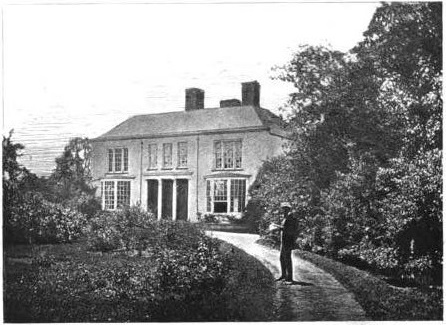|
Oliver MacDonagh
Oliver Ormond Gerard Michael MacDonagh (1924–2002), was a professor of Irish history who made a particular study of the historic relationship between Ireland and the United Kingdom. MacDonagh spent most of his academic career at universities in Cambridge, Adelaide, Cork and Canberra. Early life MacDonagh was born in Carlow, Ireland to Michael MacDonagh and Loretto Oliver, both of whom were bank officials. The family settled in Roscommon, where Oliver was initially educated by the Christian Brothers and for his secondary schooling was sent to board at Clongowes Wood College. At University College Dublin he studied History and Law, but socialised more with the 'literary set', graduating in 1944 with a Bachelor of Arts degree. He later received an MA from the National University of Ireland and a PhD from Cambridge University. Career MacDonagh was called to the Irish Bar in 1945. From 1952 until 1964 he was a lecturer and Fellow of St Catharine's College, Cambridge where he was a ... [...More Info...] [...Related Items...] OR: [Wikipedia] [Google] [Baidu] |
Carlow
Carlow ( ; ) is the county town of County Carlow, in the south-east of Ireland, from Dublin. At the 2016 census, it had a combined urban and rural population of 24,272. The River Barrow flows through the town and forms the historic boundary between counties Laois and Carlow. However, the Local Government (Ireland) Act 1898 included the town entirely in County Carlow. The settlement of Carlow is thousands of years old and pre-dates written Irish history. The town has played a major role in Irish history, serving as the capital of the country in the 14th century. Etymology The name is an anglicisation of the Irish ''Ceatharlach''. Historically, it was anglicised as ''Caherlagh'', ''Caterlagh'' and ''Catherlagh'', which are closer to the Irish spelling. According to logainm.ie, the first part of the name derives from the Old Irish word ''cethrae'' ("animals, cattle, herds, flocks"), which is related to ''ceathar'' ("four") and therefore signified "four-legged". The second p ... [...More Info...] [...Related Items...] OR: [Wikipedia] [Google] [Baidu] |
Irish Bar
The Bar of Ireland ( ga, Barra na hÉireann) is the professional association of barristers for Ireland, with over 2,000 members. It is based in the Law Library, with premises in Dublin and Cork. It is governed by the General Council of the Bar of Ireland, which was established in 1897. The Council is composed of twenty-five members: twenty who are elected, four co-opted, and the Attorney-General of Ireland, Attorney-General, who holds office ''ex officio''. Every year, ten members are elected for two-year terms; five by senior counsel and five by junior counsel. The Bar of Ireland funds the Law Library, which has premises in Dublin in the Four Courts, Church Street, and the Criminal Courts of Justice (Dublin), Criminal Courts of Justice, and also a smaller library in Cork (city), Cork. Nearly all barristers practicing in Ireland are members of the Law Library, which is often used as a metonym for the Irish barrister profession itself. Before the creation of the Bar of Ireland ... [...More Info...] [...Related Items...] OR: [Wikipedia] [Google] [Baidu] |
Sydney University
The University of Sydney (USYD), also known as Sydney University, or informally Sydney Uni, is a public research university located in Sydney, Australia. Founded in 1850, it is the oldest university in Australia and is one of the country's six sandstone universities. The university comprises eight academic faculties and university schools, through which it offers bachelor, master and doctoral degrees. The university consistently ranks highly both nationally and internationally. QS World University Rankings ranked the university top 40 in the world. The university is also ranked first in Australia and fourth in the world for QS graduate employability. It is one of the first universities in the world to admit students solely on academic merit, and opened their doors to women on the same basis as men. Five Nobel and two Crafoord laureates have been affiliated with the university as graduates and faculty. The university has educated eight Australian prime ministers, including i ... [...More Info...] [...Related Items...] OR: [Wikipedia] [Google] [Baidu] |
Honorary Doctorate
An honorary degree is an academic degree for which a university (or other degree-awarding institution) has waived all of the usual requirements. It is also known by the Latin phrases ''honoris causa'' ("for the sake of the honour") or ''ad honorem '' ("to the honour"). The degree is typically a doctorate or, less commonly, a master's degree, and may be awarded to someone who has no prior connection with the academic institution or no previous postsecondary education. An example of identifying a recipient of this award is as follows: Doctorate in Business Administration (''Hon. Causa''). The degree is often conferred as a way of honouring a distinguished visitor's contributions to a specific field or to society in general. It is sometimes recommended that such degrees be listed in one's curriculum vitae (CV) as an award, and not in the education section. With regard to the use of this honorific, the policies of institutions of higher education generally ask that recipients ... [...More Info...] [...Related Items...] OR: [Wikipedia] [Google] [Baidu] |
Theodore William Moody
Theodore William Moody (26 November 1907 – 11 February 1984) was a historian from Belfast, Northern Ireland. Background Early life Moody was born in Belfast, to a poor family who made their living from dressmaking and iron turning and was educated from 1920 to 1926 at the Royal Belfast Academical Institution, Belfast Academical Institution. Moody's parents both belonged to the Plymouth Brethren. As a six-year old in 1913, Moody saw the homes of Roman Catholics living down the street go up in flames during a riot against the Home Rule bill, which left him with a lifelong horror of the sectarian hatreds that so often characterised Irish life. At the Royal Belfast Academical Institution, Moody's strongest subjects were the sciences and Latin, but one of his teachers, Archie Douglas turned his attention to history. At the Queen's University Belfast, a professor James Eadie Todd encouraged Moody to pursue graduate studies. In 1930 he went to the Institute of Historical Research ... [...More Info...] [...Related Items...] OR: [Wikipedia] [Google] [Baidu] |
Ken Inglis
Kenneth Stanley Inglis, (7 October 1929 – 1 December 2017) was an Australian historian. Early life and education Inglis was born in the Melbourne suburb of Ivanhoe, on 7 October 1929, the son of Stan and Rene Inglis. He was educated at Tyler Street Public School, Northcote Boys' High School and Melbourne High School, before going to study at the University of Melbourne. Inglis participated in the Student Christian Movement and amateur dramatics during his studies, and worked as a tutor at Ormond College. After graduating with a Bachelor of Arts with first class honours in History and English, he read for a Master of Arts at Melbourne. Inglis's thesis, which was a history of the Royal Melbourne Hospital, was later revised and published as his first book, ''Hospital and Community'' (Melbourne University Press, 1958). Career Inglis completed his Master's degree at the University of Melbourne and his doctorate at the University of Oxford. In 1956 he was appointed as a lecturer t ... [...More Info...] [...Related Items...] OR: [Wikipedia] [Google] [Baidu] |
Immigration To Australia
The Australian continent was first settled when ancestors of Indigenous Australians arrived via the islands of Maritime Southeast Asia and New Guinea over 50,000 years ago. European colonisation began in 1788 with the establishment of a British penal colony in New South Wales. Beginning in 1901, Australia maintained the White Australia policy for much of the 20th century, which forbade the entrance in Australia of people of non-European ethnic origins. Following World War II, the policy was gradually relaxed, and was abolished entirely by 1973. Since 1945, more than 7 million people have settled in Australia. Between 1788 and the mid-20th century, the vast majority of settlers and immigrants came from the British Isles (principally England, Ireland and Scotland), although there was significant immigration from China and Germany during the 19th century. In the decades immediately following World War II, Australia received a large wave of immigration from across Europe, wit ... [...More Info...] [...Related Items...] OR: [Wikipedia] [Google] [Baidu] |
Jane Austen
Jane Austen (; 16 December 1775 – 18 July 1817) was an English novelist known primarily for her six major novels, which interpret, critique, and comment upon the British landed gentry at the end of the 18th century. Austen's plots often explore the dependence of women on marriage in the pursuit of favourable social standing and economic security. Her works critique the novels of sensibility of the second half of the 18th century and are part of the transition to 19th-century literary realism. Her use of biting irony, along with her realism and social commentary, have earned her acclaim among critics, scholars and readers alike. With the publication of ''Sense and Sensibility'' (1811), '' Pride and Prejudice'' (1813), ''Mansfield Park'' (1814), and '' Emma'' (1816), she achieved modest success but only little fame in her lifetime since the books were published anonymously. She wrote two other novels—''Northanger Abbey'' and '' Persuasion'', both published posthumou ... [...More Info...] [...Related Items...] OR: [Wikipedia] [Google] [Baidu] |
Castle Rackrent
''Castle Rackrent'' is a short novel by Maria Edgeworth published in 1800 in literature, 1800. Unlike many of her other novels, which were heavily "edited" by her father, Richard Lovell Edgeworth, before their publication, the published version is close to her original intention. Shortly before its publication, an introduction, glossary and footnotes, written in the voice of an English narrator, were added to the original text to blunt the negative impact the Edgeworths feared the book might have on English enthusiasm for the Act of Union 1800. One of the main sources of inspiration for the novel was a chronicle of her own family history called ''The Black Book of Edgeworthstown,'' which contain legal struggles of the Edgeworth's similar to those portrayed in the novel. Plot summary The novel is set prior to the Constitution of 1782. It tells the story of four generations of Rackrent heirs through their steward, Thady Quirk. The heirs are: the dissipated spendthrift Sir Patrick O' ... [...More Info...] [...Related Items...] OR: [Wikipedia] [Google] [Baidu] |
Maria Edgeworth
Maria Edgeworth (1 January 1768 – 22 May 1849) was a prolific Anglo-Irish novelist of adults' and children's literature. She was one of the first realist writers in children's literature and was a significant figure in the evolution of the novel in Europe. She held views on estate management, politics and education, and corresponded with some of the leading literary and economic writers, including Sir Walter Scott and David Ricardo. Life Early life Maria Edgeworth was born at Black Bourton, Oxfordshire. She was the second child of Richard Lovell Edgeworth (who eventually fathered 19 children by four wives) and Anna Maria Edgeworth (''née'' Elers); Maria was thus an aunt of Francis Ysidro Edgeworth. She spent her early years with her mother's family in England, living at The Limes (now known as Edgeworth House) in Northchurch, by Berkhamsted in Hertfordshire. Her mother died when Maria was five, and when her father married his second wife Honora Sneyd in 1773, she went with ... [...More Info...] [...Related Items...] OR: [Wikipedia] [Google] [Baidu] |
Daniel O'Connell
Daniel O'Connell (I) ( ga, Dónall Ó Conaill; 6 August 1775 – 15 May 1847), hailed in his time as The Liberator, was the acknowledged political leader of Ireland's Roman Catholic majority in the first half of the 19th century. His mobilization of Catholic Ireland, down to the poorest class of tenant farmers, secured the final installment of Catholic emancipation in 1829 and allowed him to take a seat in the Parliament of the United Kingdom, United Kingdom Parliament to which he had been twice elected. At Palace of Westminster, Westminster, O'Connell championed liberal and reform causes (he was internationally renowned as an Abolitionism, abolitionist) but he failed in his declared objective for Ireland—the restoration of a separate Irish Parliament through the repeal of the Acts of Union 1800, 1800 Act of Union. Against the backdrop of a growing agrarian crisis and, in his final years, of the Great Famine (Ireland), Great Famine, O'Connell contended with dissension at home ... [...More Info...] [...Related Items...] OR: [Wikipedia] [Google] [Baidu] |
Yale University
Yale University is a private research university in New Haven, Connecticut. Established in 1701 as the Collegiate School, it is the third-oldest institution of higher education in the United States and among the most prestigious in the world. It is a member of the Ivy League. Chartered by the Connecticut Colony, the Collegiate School was established in 1701 by clergy to educate Congregational ministers before moving to New Haven in 1716. Originally restricted to theology and sacred languages, the curriculum began to incorporate humanities and sciences by the time of the American Revolution. In the 19th century, the college expanded into graduate and professional instruction, awarding the first PhD in the United States in 1861 and organizing as a university in 1887. Yale's faculty and student populations grew after 1890 with rapid expansion of the physical campus and scientific research. Yale is organized into fourteen constituent schools: the original undergraduate col ... [...More Info...] [...Related Items...] OR: [Wikipedia] [Google] [Baidu] |







